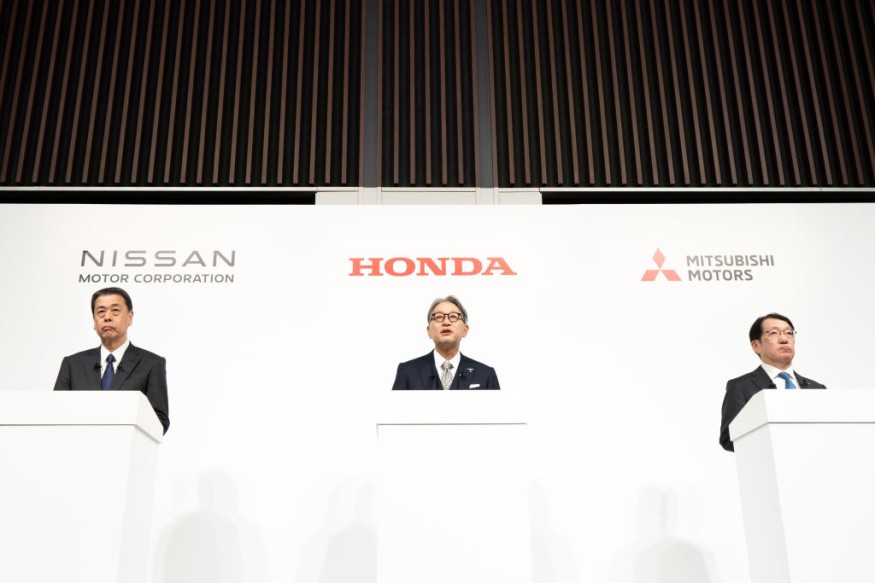
Japanese automakers Honda Motor Co. and Nissan Motor Co. have initiated talks on a historic merger that could reshape the global automotive industry.
If successful, the merger, which includes Nissan's alliance partner Mitsubishi Motors, would create the world's third-largest auto group, producing over 8 million vehicles annually. This move comes as traditional carmakers face increasing pressure from Chinese competitors and a rapid transition to electric vehicles (EVs).
Honda-Nissan Merger Could Transform Auto Industry, Set to Challenge Global Giants
The companies announced on Monday that they had signed a preliminary agreement to explore the merger.
According to a joint briefing in Tokyo, the deal would establish a holding company by August 2026, with Honda nominating most of the directors. Mitsubishi Motors, which is partially owned by Nissan, will also join the alliance.
According to ABC News, this potential merger aims to compete with global industry leaders like Toyota Motor Corp. and Volkswagen AG. Toyota, which produced 11.5 million vehicles in 2023, remains the largest Japanese automaker.
Together, Honda, Nissan, and Mitsubishi would consolidate resources to tackle industry challenges, including the costly shift to EV production.
Nissan, struggling financially after a significant drop in sales in the US and China, views the merger as a lifeline.
The company has faced difficulties since the arrest of former chairman Carlos Ghosn in 2018, which disrupted its operations. Recent financial struggles have forced Nissan to cut jobs, reduce production, and adjust its profit outlook.
Honda and Nissan Merge to Boost EV Capabilities and Compete with Chinese Rivals
For Honda, the merger offers an opportunity to expand its EV capabilities. Nissan brings valuable experience in battery production, hybrid powertrains, and autonomous vehicle technology.
These resources could help Honda catch up in the race for EV dominance, where it has lagged behind competitors like Toyota.
Chinese automakers, including BYD and Geely, have rapidly advanced in EV manufacturing, creating fierce competition in China, the world's largest auto market, Bloomberg said.
Japanese automakers, including Nissan and Honda, have struggled to adapt, leading to excess capacity and declining sales in the region.
The merger would also allow the companies to share components and streamline costs, with plans to develop joint EV platforms and autonomous driving technology. The combined entity could be valued at over $50 billion, according to market estimates.
Despite these ambitious plans, challenges remain. Nissan's financial outlook has been downgraded due to declining profitability, while Honda has faced setbacks in China. The companies hope that the merger will provide the scale and innovation needed to stay competitive in a rapidly evolving market.
With details expected to be finalized by June, the merger reflects the growing trend of consolidation in the automotive industry. As carmakers navigate shifting market dynamics, alliances like this could shape the future of mobility.















